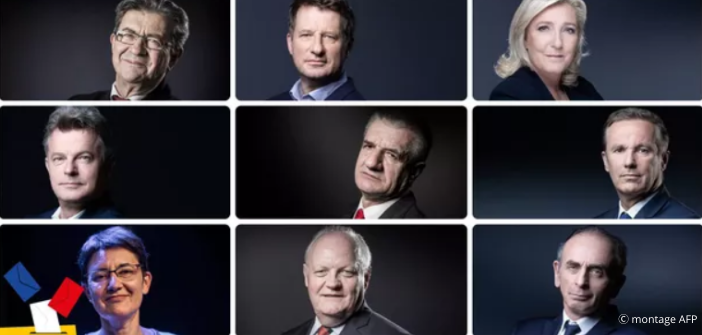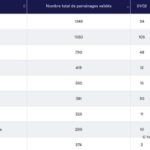Since the 1960s, candidates for presidential elections have been chosen through a sponsorship system. Today, politics is of less and less interest to people, and for many, this archaic system is representative of this lack of interest.
42,000 elected officials for only 6,000 sponsorships. The representatives who are meant to choose potential candidates for the French presidency are not doing so. What is sponsorship? Created in 1962, it is a filtering system. It limits the number of contenders who can run for the position of Head of State and prevents what are called “fantasy” proposals from certain political parties. Candidates must gather the votes of delegates, who include: deputies, senators and French representatives in the European Parliament, mayors, councillors of Paris and the Lyon metropolitan area, departmental and regional councillors, etc.
In 2022, France counts 42,000 elected officials. They can only choose one representative. If this person does not run for president, the voter cannot change their choice. To avoid favoring local candidates, contenders for the position of head of state are required to have elected officials from at least 30 different departments/collectivities and their vote must not exceed 10%. To validate their voices, delegates must fill out a presentation form. They then send it to the Constitutional Council.
The Limits of Sponsorship
Since its creation, this rule has been the subject of much debate:
- Despite the constraint of 500 signatures, there are still many applicants. (In 1962, 100 signatures were needed to run. Since the 1976 reform, 500 are required. But in 2002, there were 16 presidential candidates.)
- This system is incapable of making room for popular but non-systemic political personalities.
- Elected officials can negotiate their support.
- Considerable pressure can be exerted on mayors of small towns.
Several reforms have already been proposed to improve this process: making 100,000 elected officials vote for the candidates they want to see, implementing a citizen sponsorship (150,000 signatures required), making sponsorship secret to reduce pressure, etc. All these reforms have been rejected.
And if this process is no longer mandatory
If sponsorships were no longer mandatory, applicants, often called “small candidates,” could run in the first round. There would be more representatives and possibly less abstention because the French might feel more represented, according to political scientist Christian Le Bart: “Occasionally, if we broaden the offer, we multiply the possibility that people who are not interested in the election or who do not feel represented by traditional candidates might project onto candidates a little outside the political sphere and thus go vote.” Many criticisms are made regarding the topics discussed during debates. With more representatives, subjects could be more diversified.
But the removal of this system could lead to general misunderstanding, as explained by political scientists Christian Le Bart and Sophie Lamouroux in the newspaper Ouest France: “If we were to remove any filtering system, the number of candidacies could then be very large, making the political offer unreadable.”
“Instead of creating unity, the multitude of candidacies could also create even more divisions.”
Sponsorship is a topic that arises often during presidential elections and still generates much debate. Recently, to denounce this process, David Lisnard, mayor of Cannes, posted a video on the social network Twitter. The Cannes official criticizes the lack of sponsorship for the main actors of the presidential election: “It is clear that there is a problem in gathering them… It would be a serious blow to democracy if they could not run again,” explains the mayor. To “ensure free democratic and Republican expression,” the official, who supports Valérie Pécresse, decided to sponsor his political opponent: Jean-Luc Mélenchon. “All candidates representing a political party must compete. It is a matter of responsibility, civic unity, and Republican spirit,” concludes David Lisnard.
This year, sponsorship is still in force, and elected officials have until March 4, 6:00 PM to make their decisions.



